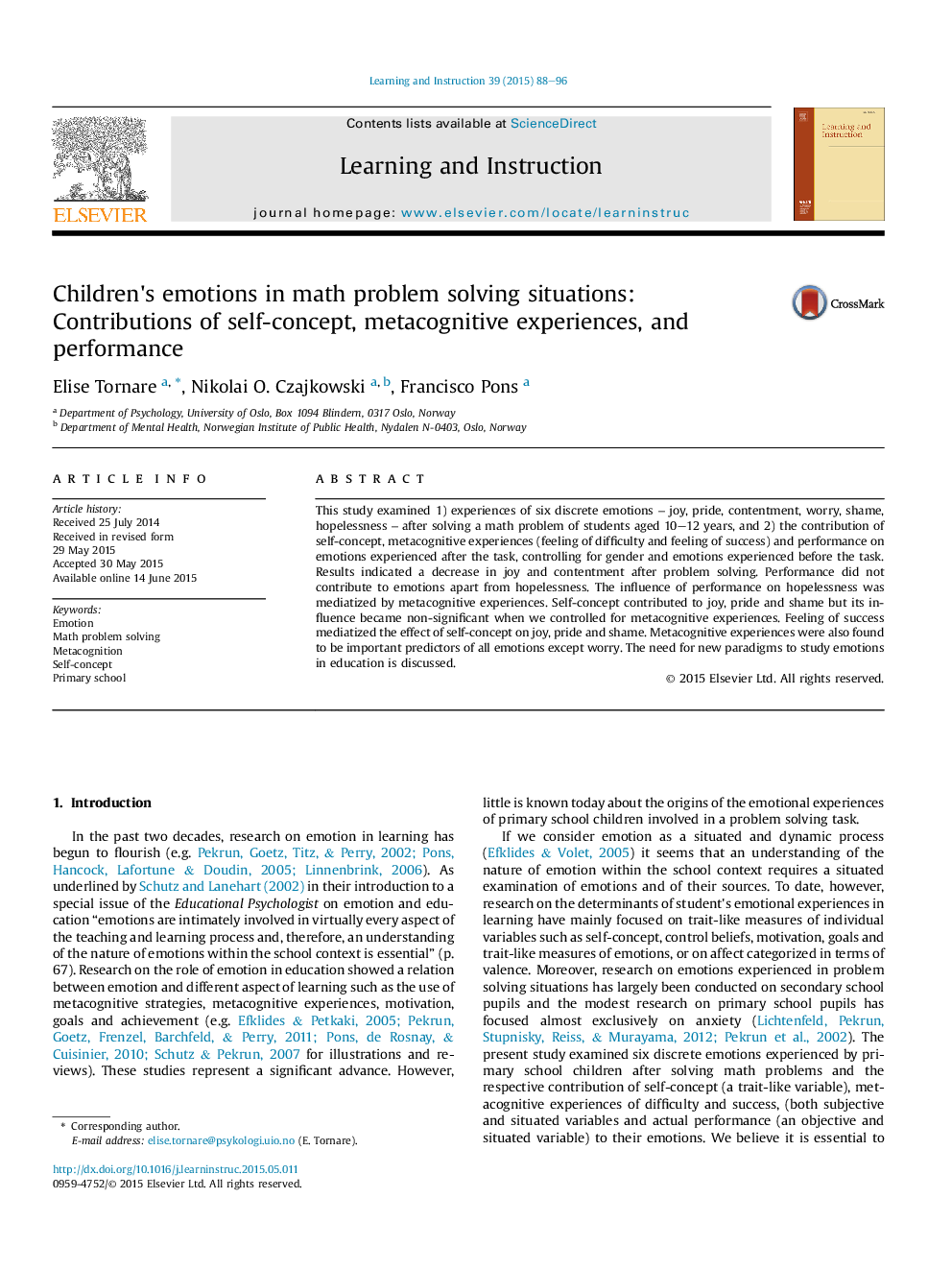| کد مقاله | کد نشریه | سال انتشار | مقاله انگلیسی | نسخه تمام متن |
|---|---|---|---|---|
| 365505 | 621197 | 2015 | 9 صفحه PDF | دانلود رایگان |
• Problem solving decreases experiences of pleasant emotions.
• Metacognitive experiences are important predictors of emotions experienced after problem solving.
• Metacognitive experiences mediatize the influence of self-concept on joy, pride and shame.
• Performance is not a god predictor of children's emotion after problem solving.
This study examined 1) experiences of six discrete emotions ‒ joy, pride, contentment, worry, shame, hopelessness ‒ after solving a math problem of students aged 10–12 years, and 2) the contribution of self-concept, metacognitive experiences (feeling of difficulty and feeling of success) and performance on emotions experienced after the task, controlling for gender and emotions experienced before the task. Results indicated a decrease in joy and contentment after problem solving. Performance did not contribute to emotions apart from hopelessness. The influence of performance on hopelessness was mediatized by metacognitive experiences. Self-concept contributed to joy, pride and shame but its influence became non-significant when we controlled for metacognitive experiences. Feeling of success mediatized the effect of self-concept on joy, pride and shame. Metacognitive experiences were also found to be important predictors of all emotions except worry. The need for new paradigms to study emotions in education is discussed.
Journal: Learning and Instruction - Volume 39, October 2015, Pages 88–96
